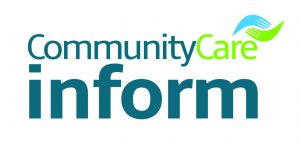
 This article is comprised of excerpts taken from a new guide on Community Care Inform Adults about working with adults with foetal alcohol spectrum disorders. The guide is written by Joanna Buckard, a specialist trainer and health and social care lecturer. Inform subscribers can read the full guide.
This article is comprised of excerpts taken from a new guide on Community Care Inform Adults about working with adults with foetal alcohol spectrum disorders. The guide is written by Joanna Buckard, a specialist trainer and health and social care lecturer. Inform subscribers can read the full guide.Foetal alcohol spectrum disorders are a set of entirely preventable mental, physical and neuro-behavioural birth defects caused by maternal alcohol consumption. This damage is manifested in physiological, learning and behavioural disorders in the individual. However, these may be hidden and not easily apparent.
FASD is an umbrella term describing lifelong irreversible conditions and is considered to be the most prevalent non-genetic cause of mental and behavioural problems in children in the Western world. FASD is under-known and under-recognised in the UK and many believe that it must be a rare condition because they have not knowingly worked with someone with FASD. Yet the international rate of FASD has, historically, been thought to be 1 in 100. When compared to other conditions, such as Down’s syndrome, for which the rate is 1 in 1000, then it is evident that FASD is significantly more prevalent. The rate for the UK is believed to be between 3%-6% of the population.
How might FASD present in adults?
How FASD presents varies massively from individual to individual and depends on how much alcohol the foetus was exposed to in the womb and at which gestation. The most common symptoms are some form of brain damage and/or developmental difficulties. People with FASD may also have difficulty with communication, social functioning, planning and understanding consequences.
Adults with FASD have deficits in executive functioning, such as thinking logically; organization; the ability to plan; to problem solve; to link together cause and effect; and to comprehend consequences from potential actions.
Difficulties with executive functioning can have a significant impact on working as well as living independently in various ways:
- Task initiation/completion – difficulty in getting started with a task and limited attention can interfere with completing an activity.
- Memory – there may be problems with remembering information, using knowledge gained from past situations, and getting to places for the required time.
- Prioritising – problems with breaking down tasks into different elements and then prioritising.
- Self-monitoring – adults with FASD can have difficulty regulating their behaviour to manage social situations, as well as not picking up on verbal or non-verbal cues from those around them and modifying their behaviour accordingly.
- Impulse control – this can lead to challenging situations, such as misusing drugs or alcohol, gambling, shoplifting or touching someone inappropriately.
- Processing speed – the ability to receive, understand and process information can be affected, which can make it difficult to make decisions.
- Cognitive flexibility – the ability to shift thoughts or actions as demanded by the situational context can be affected, so being able to think of a new way of doing something when the usual way isn’t possible, for example, the bus breaks down and you need to find a different route to work. An adult with FASD may find this situation stressful.
People with FASD often have what is referred to as a “spiky” profile. This is where they may not have an even performance across all domains. The scores on sub-tests in psychometric and speech and language tests may show statistically significant differences. For example, somebody may have good expressive language skills, but poor receptive language and comprehension skills. They may have an IQ within the normal range but score low on working memory or adaptive behaviour tests.
This can mean that adults may present as very able, but they ‘talk the talk’ but don’t always ‘walk the walk’. Social workers need to bear this mind if they are dealing with someone who consistently doesn’t follow through with agreed actions, because it might not be because they’re being difficult, but because they are finding it problematic. For example, a social worker may ask an adult whether they can phone an agency, clean the house, or complete a form. The individual says they can, but when the social workers visits again, they haven’t and they can’t explain why.
Given the prevalence rate of FASD – and the fact that most adults with FASD won’t have the facial features associated with FAS and even where these are present they may not be obvious because they become less apparent as people age – it would be prudent to consider FASD when assessing adults who have autism, learning disabilities, ADHD, or developmental delay.


 Bournemouth, Christchurch and Poole
Bournemouth, Christchurch and Poole  Hampshire County Council
Hampshire County Council  Lincolnshire County Council
Lincolnshire County Council  Norfolk County Council
Norfolk County Council  Northamptonshire Children’s Trust
Northamptonshire Children’s Trust  South Gloucestershire Council
South Gloucestershire Council  Wiltshire Council
Wiltshire Council  Wokingham Borough Council
Wokingham Borough Council  Children and young people with SEND are ‘valued and prioritised’ in Wiltshire, find inspectors
Children and young people with SEND are ‘valued and prioritised’ in Wiltshire, find inspectors  How specialist refugee teams benefit young people and social workers
How specialist refugee teams benefit young people and social workers  Podcast: returning to social work after becoming a first-time parent
Podcast: returning to social work after becoming a first-time parent  Podcast: would you work for an inadequate-rated service?
Podcast: would you work for an inadequate-rated service?  Family help: one local authority’s experience of the model
Family help: one local authority’s experience of the model  Workforce Insights – showcasing a selection of the sector’s top recruiters
Workforce Insights – showcasing a selection of the sector’s top recruiters 

 Facebook
Facebook X
X LinkedIn
LinkedIn Instagram
Instagram
Having worked with someone who has FAS and an associated mild learning disability, this rings very true. I’m pleased to see this. It would be easy to assume people with FASD’s don’t need much support.
People with FASD are also over represented in prison.